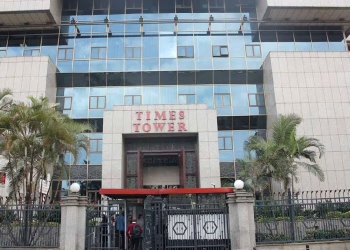Corrupt individuals in Kenya are exploiting gaps in beneficial ownership laws to repatriate billions from the mining sector, significantly limiting its contribution to the national economy.
A recent report by Global Financial Integrity (GFI), titled Illicit Financial Flows Related to Beneficial Ownership in the Mining Sector in Kenya, highlights that billions have been lost over the years. The report emphasizes that while Kenya’s mining industry has the potential to contribute 4-10 percent to the country’s GDP, it currently accounts for less than one percent.
In the previous year, the mining sector generated Sh300 billion, yet issues such as mis-invoicing, undervaluation of exported minerals, and tax evasion have undermined its potential.
According to GFI, the mining sector could drive significant economic growth, but it faces considerable challenges, including illicit cash flows and regulatory shortcomings. The report points out the lack of publicly accessible records to monitor compliance among mining companies, compounded by low transparency regarding beneficial ownership. This opacity enables political and economic elites to misuse their influence, facilitating illicit fund transfers.
Moreover, the report highlights deficiencies in enforcing anti-money laundering laws, which exacerbates issues related to money laundering and the concealment of wealth gained from mining operations.
The report also notes that illicit financial flows (IFFs) from Kenya are often linked to funding terrorist activities in Somalia, stemming from proceeds related to piracy and mining.
Despite initiatives like the establishment of the Financial Reporting Centre (FRC) in 2012 aimed at combating illicit financial activities, persistent government corruption remains a significant barrier. Issues such as irregularities in contract awards and racketeering contribute to the outflow of funds associated with mining.
International corporations involved in the mining sector may exploit transfer pricing, shifting profits to low-tax jurisdictions and perpetuating IFFs. The lack of administrative capacity to enforce complex regulations allows multinational companies to benefit from existing loopholes, resulting in substantial financial outflows.
Estimates of IFFs in Africa by GFI suggest that these flows often exceed material accounting thresholds, indicating significant financial leakages from the continent. In Kenya, trade mis-invoicing and transfer pricing manipulation enable the movement of undeclared income, further fueling illicit financial flows.
Quantifying IFFs poses challenges due to the difficulties in measuring activities like unrecorded cash movements, underreporting, and tax evasion. GFI’s estimates utilize various analytical approaches, shedding light on the scale of these flows from developing countries.
Research indicates that mining firms worldwide transferred over $850 billion in profits to countries with tax rates below 10 percent in 2017. The data suggest a concerning trend of outward profit shifting, leading to significant revenue losses for Kenya.

















